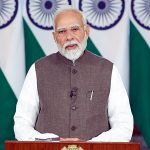Srinagar, July 07: The Health Department Kashmir is conducting screening of non-communicable diseases (NCDs) among the above 30-year cohort to limit the rapid health transition with a rising burden of NCDs in the valley.
The health department has started many activities and screening camps are held to detect NCDs particularly hypertension, diabetes, cancer and other respiratory illnesses.
Dr Junaid Kousar, Nodal Officer, NCDs, Directorate of Health Services Kashmir (DHSK) said NCDs are the major cause of death worldwide but these diseases are preventable.
“As part of preventive measures, we are holding screening camps in all major hospitals and other places so that we detect the patients early. Preventive and promotive healthcare is very important and screening plays a pivotal role. If the screening is done at an early stage then we can treat it in a better way,” he said.
He said there is a huge burden of hypertension, diabetes and other NCDs and the activities can help detect people early and make them aware of the same. The activities are done under the National Program for Prevention & Control of Non-Communicable Diseases (NP-NCD).
Dr Junaid said in every district hospital there are NCD clinics where diabetic and hypertension patients are registered and they are also given free-of-cost drugs. In district hospitals, there are counselors for the patients.
“We also do awareness campaigns during which patients are encouraged to focus on preventions like avoiding smoking, avoiding salt etc. They are also encouraged to live an active lifestyle, take fruits and vegetables,” he said.
“Due to an inactive lifestyle people are involved in NCDs and these are life-threatening if the disease goes uncontrolled. We have been promoting a healthy and active lifestyle over the years,” the Nodal Officer said.
Under the NP-NCD the department focuses on strengthening infrastructure, human resource development, health promotion, early diagnosis, management and referral.
“We have been screening the above 30 year cohort. Now, we are going to start screening above the 18-year population. Generally, the people will be screened. If a patient is detected, they are given treatment including precautions,” Dr Junaid said.
At the health and wellness centres in the valley, the health workers visit door to door to do the screening of people and people are also counseled as well. “We also have NCD clinics in district and sub-district hospitals where people are counseled about the same,” he said.
The four major NCDs are cardiovascular diseases (CVDs), cancers, chronic respiratory diseases (CRDs) and diabetes which share four behavioural risk factors – unhealthy diet, lack of physical activity, and use of tobacco and alcohol.
In May this year, the Ministry of Health and Family Welfare (MoHFW) renamed National Programme for Prevention and Control of Cancer, Diabetes, Cardiovascular Diseases and Stroke (NPCDCS) to National Programme for Prevention & Control of Non-Communicable Diseases (NP-NCD).
As per the World Health Organization, NCDs share four major risk factors: tobacco use, physical inactivity, the harmful use of alcohol and unhealthy diets.
The epidemic of NCDs poses devastating health consequences for individuals, families and communities, and threatens to overwhelm health systems.
The socioeconomic costs associated with NCDs make the prevention and control of these diseases a major development imperative for the 21st century.








